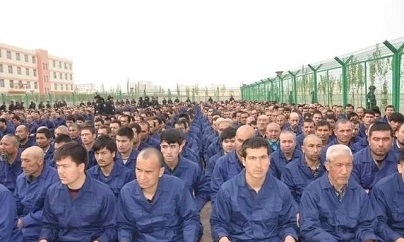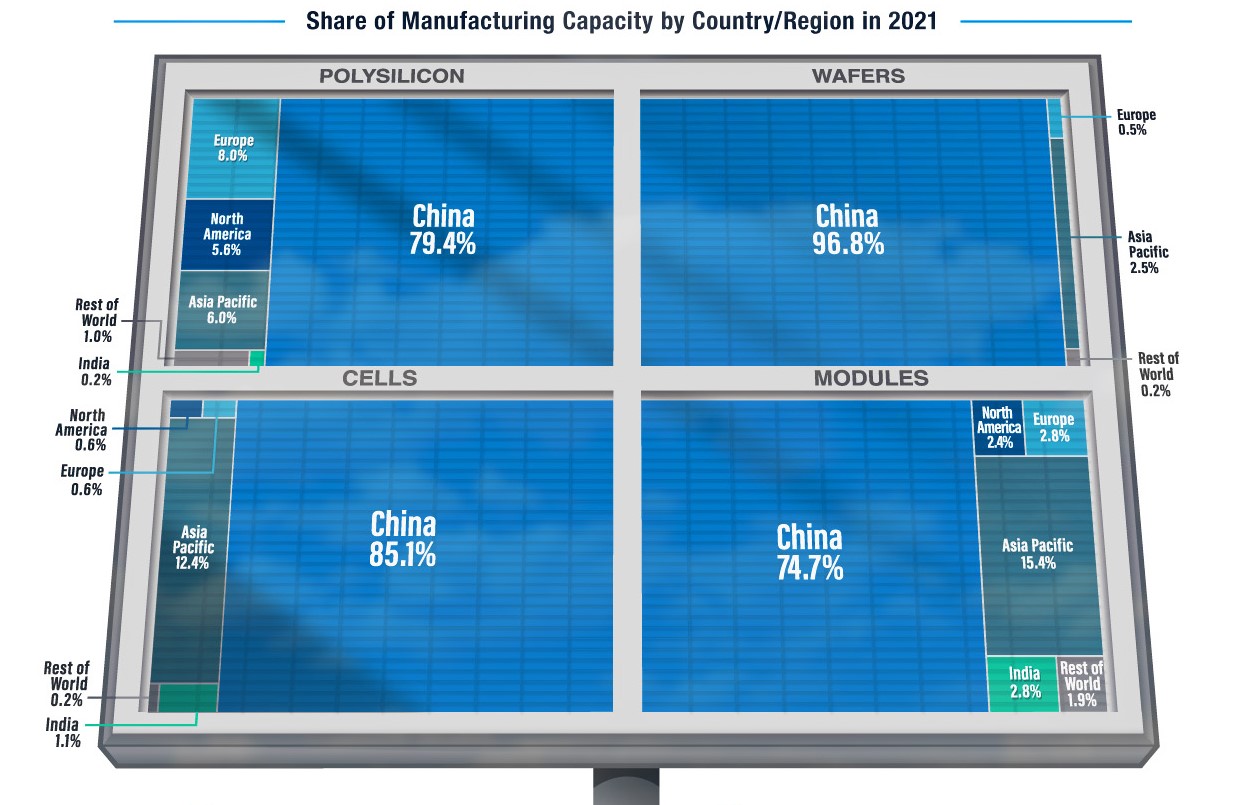
A Xinjiang Re-education Camp | Wiki
Greens create slavery
What’s more important — freeing people in slave labor camps today or making the world one hundreth of a degree cooler a century from now? Oh the dilemma.
It’s just another unintended consequence on the road to Climate Heaven. If solar panels were actually efficient and competitive they’d make network electricity cheaper and theoretically, at least, there would be money to pay for real wages. Instead competition is cut-throat, and no country with a lot of solar panels can actually afford to make solar panels.
New Walk Free study shows Australia’s push for green transition exploits slave labour
By Jenna Clarke, The Australian
Leading Australian philanthropist Grace Forrest is warning Climate Change and Energy Minister Chris Bowen that the push for Australia’s green energy transition could force more people into slavery.
The comprehensive international study, five years in the making, shows Australia’s supply chains and products at risk of human exploitation for the first time, including solar panels which are imported from China at a cost of close to $2bn.
“For the first time, we have solar panels in our top five most vulnerable products of modern slavery. This is a confronting reality, one that speaks to compounding an intersecting crisis,” Ms Forrest told The Australian.vMs Forrest said. “You can‘t harm people to save the planet.”
If we cut back on slave made solar panels, where will the solar panels come from, and how much more will the forced energy transition cost?
It’s no accident 84% of all the world’s solar panels are made in China
No one else can compete with slave labour, and no one else has as much coal fired electricity.
China has cornered the solar panel market and supply lines. Squint closely to see “the rest of the world”…
Ironically, Grace Forrest, who founded “Walk Free” is funded by her father, billionaire Twiggy Forrest who wants to build the largest ever solar farm in the world in the Northern Territory. That may explain why she bizarrely doesn’t believe in boycotts. Instead she wants a bigger government with more rules (just a lighter version of slavery, eh?):
From fashion to solar panels, taint of slavery stalks firms
Hans van Leewen, AFR
…Walk Free boss Grace Forrest says that although consumers should shop carefully, the real onus for tackling the problem is not on them: it is on governments and businesses – which are not doing enough, despite the strictures of the five-year-old Modern Slavery Act.
She wants to see non-compliant companies hit with financial penalties. And she urges politicians not to worry about exacerbating the cost-of-living crisis, because paying exploited workers a fair wage would boost prices by as little as 1 per cent.
She said Walk Free did not support boycotts, and was not asking consumers to take responsibility for eradicating modern slavery. As with climate issues, the equivalent of greenwashing could make it too difficult for the individual shopper.
Magical thinkin’ — apparently businesses can do this without hurting consumers:
“We actually argue the business should absorb that cost, rather than it being for the consumer,” she told The Australian Financial Review while visiting London to launch Walk Free’s latest Global Slavery Index.
We presume she flew to London for the launch. Nice work if you can find a philanthropist to pay for the trip. But hey, she could have been playing the party-circuit, and instead she is raising awareness of modern slavery.
Slavery in other G20 countries means we all need more laws, and more lawyers
Somehow because there is slavery in China and it’s a G20 country, it follows that Canada and Australia need to bring in legislation and employ more bureaucrats.
“The fact is that 50 per cent of the world’s people living in modern slavery are residing in G20 countries,” she said. This statistic showed that the slavery problem was not just in poorer countries – “it’s over here, not over there”, as she put it.
“We would like to see an increase in legislation across the G20 countries. Canada has just announced this. Germany is going to see their example set across the EU in the coming years. We just need the political will now to step up and do that everywhere.”
Ms Forrest says “You can‘t harm people to save the planet.” Jo Nova says, “They are already harming people, and they probably won’t save anything.” What’s wrong with boycotts?
REFERENCE
GLOBAL SLAVERY INDEX, Walk Free

